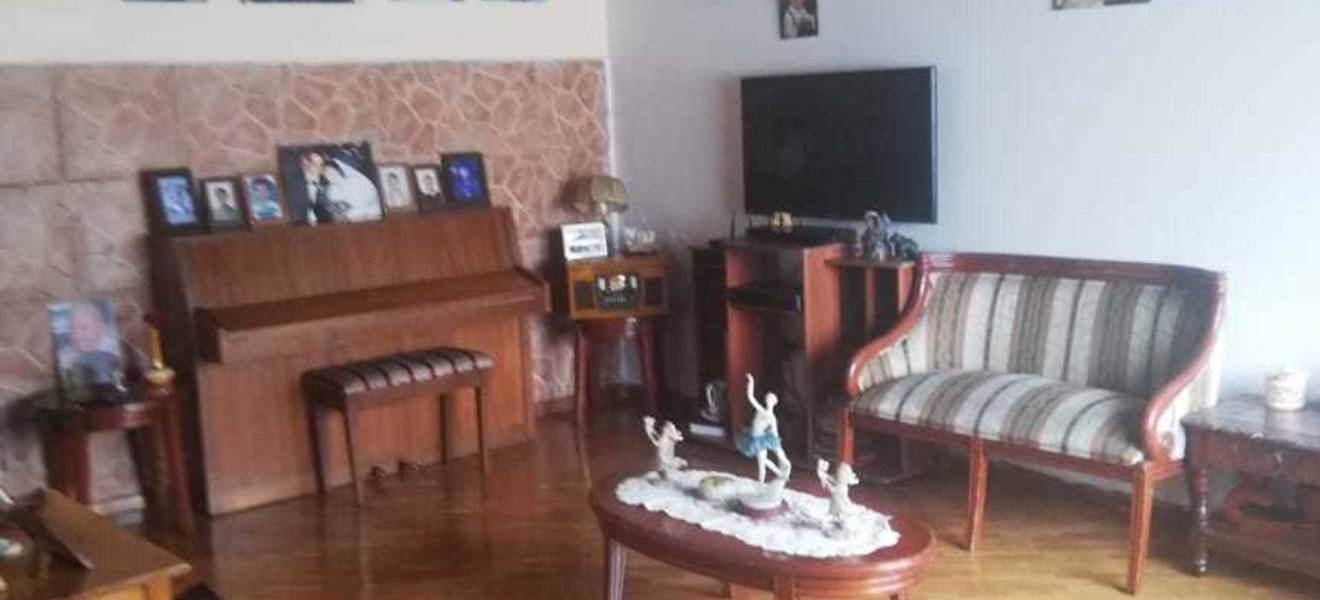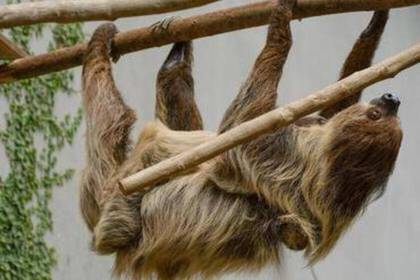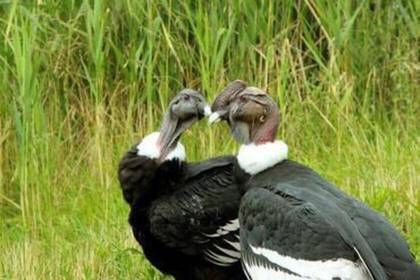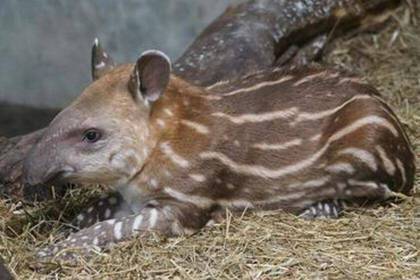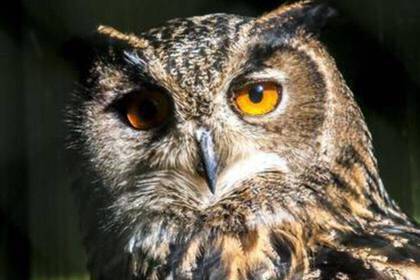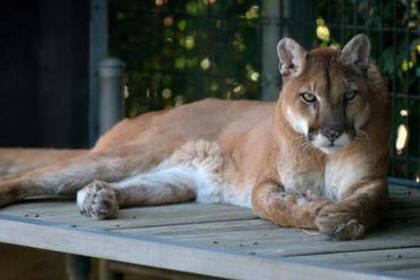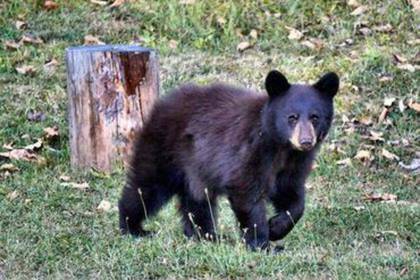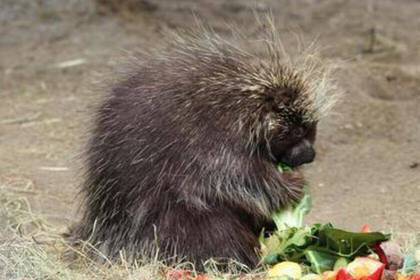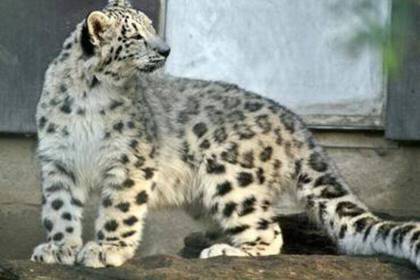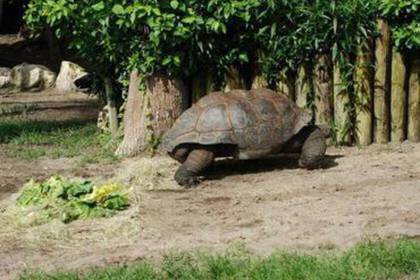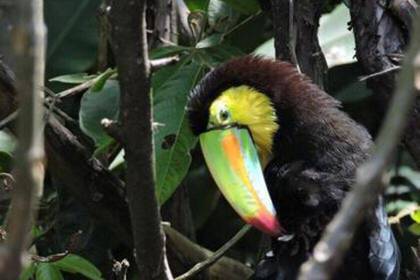Volunteering in an animal welfare project in Ecuador
- Urban everyday life
- Diverse cuisine
- High recreational value
North of Ecuador's capital Quito, an organization rescues and cares for animals that have fallen victim to poaching or illegal trade. The alternative zoo project offers a new, temporary home to giant tortoises, bears and jaguars, among others. Volunteers help the staff with feeding, cleaning, animal observation and maintaining the infrastructure and green spaces.
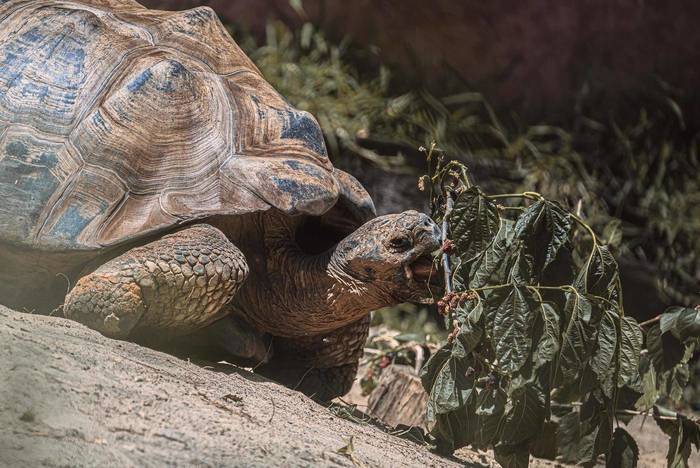
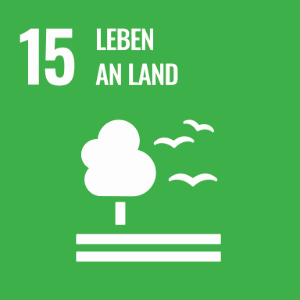
Protect, restore and promote sustainable use of terrestrial ecosystems, sustainably manage forests, combat desertification, halt and reverse land degradation and halt biodiversity loss.
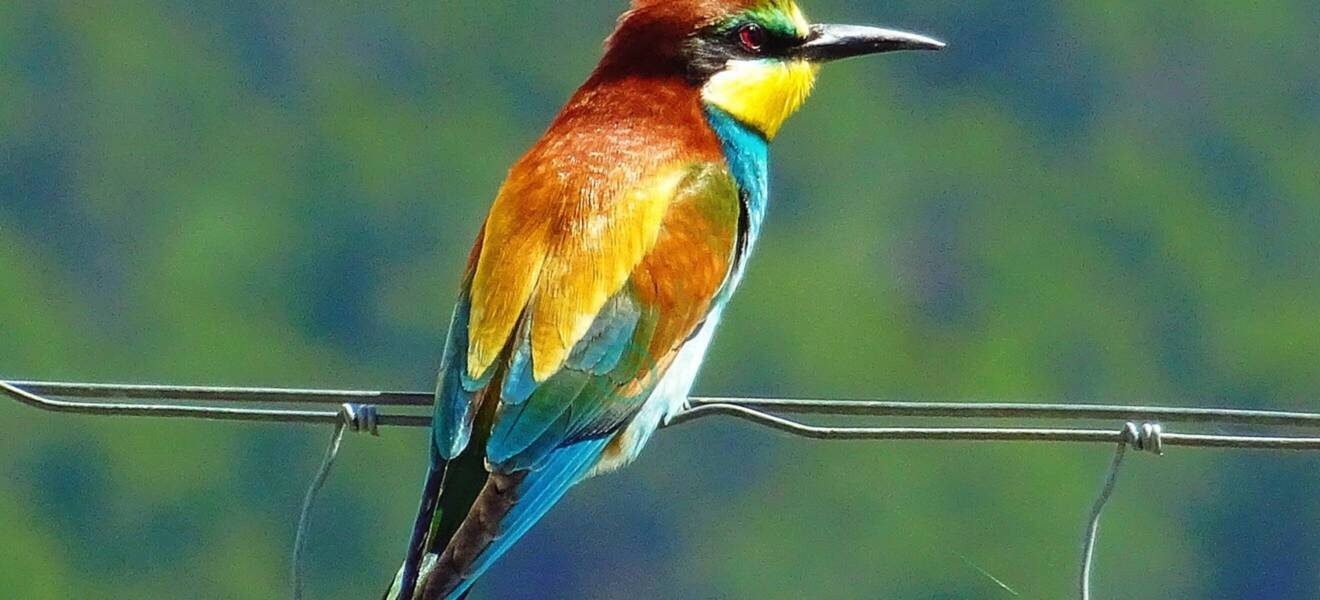
What's the matter?
In the community of Guayllabamba north of Quito, a non-profit organization takes care of around 130 animals. The animals were victims of poor husbandry, poaching or abuse and are being nursed back to health at the zoo. New protégés are admitted every month and receive the necessary medical care. Some animals find their new home here, others are prepared to be kept in a more species-appropriate manner or, ideally, to return to the wild.
The animals come from different habitats, such as moor and swamp areas, wasteland and steppe, but also from the rainforest, sea and farms. A selection of the animals you can meet at the zoo include bears, tapirs, snakes, exotic frogs, Andean condors, pumas, jaguars, giant tortoises, sloths, owls, monkeys, snow leopards and more.
Note: Which animals are actually in the zoo always depends on the success of the release. So it is not guaranteed that the mentioned animals are there.
The facility is financed exclusively by donations and entrance fees. Due to the size of the facility and the wide range of tasks, a lot of staff is always required, but the facility cannot afford them. In order for the project to succeed, it is dependent on the support of dedicated volunteers.
The aim of this project is to raise people's sense of responsibility for the preservation of nature, to focus on environmental education and to take a pioneering role in the implementation of the zoo's sustainable development goals.
Your tasks as a volunteer
In the first two weeks you will get to know the individual departments of the zoo: conservation education, animal welfare and administration. In addition, you will spend time with an educator from the education department, where you will be introduced to the functioning, routine, logistics and work of the individual areas.
As a volunteer in the zoo project, you will assist the specialist staff and help with feeding, cleaning the enclosures and observing the behavior of the animals. This serves to better assess the condition of the animals and to be able to recognize unusual behavior at an early stage. You will also support the institution in creating green spaces and maintaining the infrastructure. You regularly document your activities and the condition of the animals. Occasionally you may be taken to other animal sanctuaries.
If you already have professional experience in dealing with animals and have a good knowledge of Spanish, you have the opportunity to delve deeper into the project work. In this case, the following tasks await you:
- Educational work: You inform schoolchildren and visitors about the zoo. They should interactively get to know the survival strategies and the adaptive behavior of the animals and gain an awareness of environmental protection.
- Training with the animals: through the design of enclosures and activation therapies for injured animals, species-appropriate husbandry should be made possible. The aim is to avoid boredom of the animals in "captivity". Note: The care of the animals should contribute to their recovery and well-being. Therefore, as a volunteer, you have no direct contact with them.
- Environmental education: You support the development of materials for environmental education programs, events and lectures. You are also welcome to get involved in campaigns, workshops and environmental education activities. You can help with interpreting on guided tours within the zoo or other facilities. Conservation education is an important topic that concerns everyone and you will do a great job educating families and students about the different topics.
- Nursery: You help plant seeds of native plants. Afforestation is important for the preservation of the natural environment. The design of animal enclosures in the form of planting and the planning of this is also part of the general tasks.
As a volunteer, you usually work five days a week, about eight hours a day. Your day usually starts at 8 a.m. and before you start working on the project, the shifts and activities are distributed according to need. The educators, educators and volunteers will rotate to ensure a smooth process. During the lunch break, you can chat and relax over lunch with the other volunteers and employees. Since the animals have to be taken care of every day, your help is sometimes needed at the weekend as well.
National holidays in Ecuador are the busiest days for the Quito Zoo, so the support of the team of volunteers is essential. List of public holidays in Ecuador
During work, like all employees, you wear overalls, a hat and a mask - this uniform is provided by the zoo for the duration of your stay. You must bring your own sturdy, sturdy shoes.
In order to take part in this project, you need the following vaccinations and must be able to prove them with a vaccination card: rabies, hepatitis A and B, tetanus and yellow fever. In addition, proof of your blood group and a negative tuberculosis test are mandatory.
Accommodation Catering
Host family in Quito
If you take part in a project in Quito as a volunteer or during the language course in Quito, you will live with Ana Lucia's host family. The house has four bedrooms and two bathrooms, a kitchen and a terrace. Up to eight volunteers from different projects can be accommodated, two per room and separated by gender. You can also use the washing machine in the house and have access to WiFi.
In the vicinity you will find parks, churches, restaurants and many supermarkets. There are also karaoke bars nearby for fun nights out. You can come to the project every day either by car or on foot, it is very close (10 minutes).
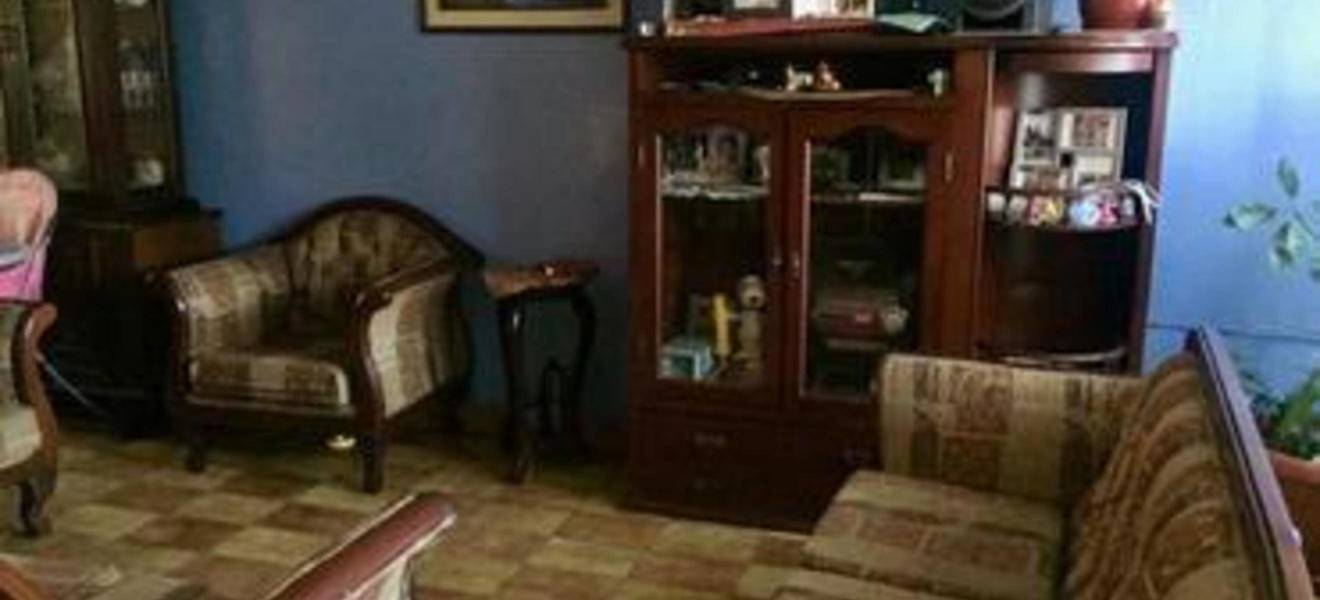
Host family Jurado in Quito
The cozy apartment of our host family Jurado is located in the Carcelén district. You can walk to everything you need to live: supermarkets, pharmacies, restaurants, a park, sports facilities...
There is always only one volunteer in the family. In addition to a fully equipped kitchen, bathroom and a dining and living room, you will also find a washing machine here and you can use the WiFi.
From Monday to Friday you will get breakfast and dinner from your host mother. Depending on the project, lunch is also included. At the weekend you have to take care of your own food. You can of course use the kitchen of the host family at any time.
- Alternative Zoo Project: Lunch included
- School project: Lunch has to be organized by yourself
- Kindergarten Project: Breakfast and lunch included
You can get to the zoo project with a shuttle bus especially for the zoo employees.
The school is about 8 km from the house and can be reached in different ways: either you go by bus or taxi, or you rent a bike from the host family.
The kindergarten is a good 7 km from the accommodation. The best way to get to the project site is by bus or taxi.
Location
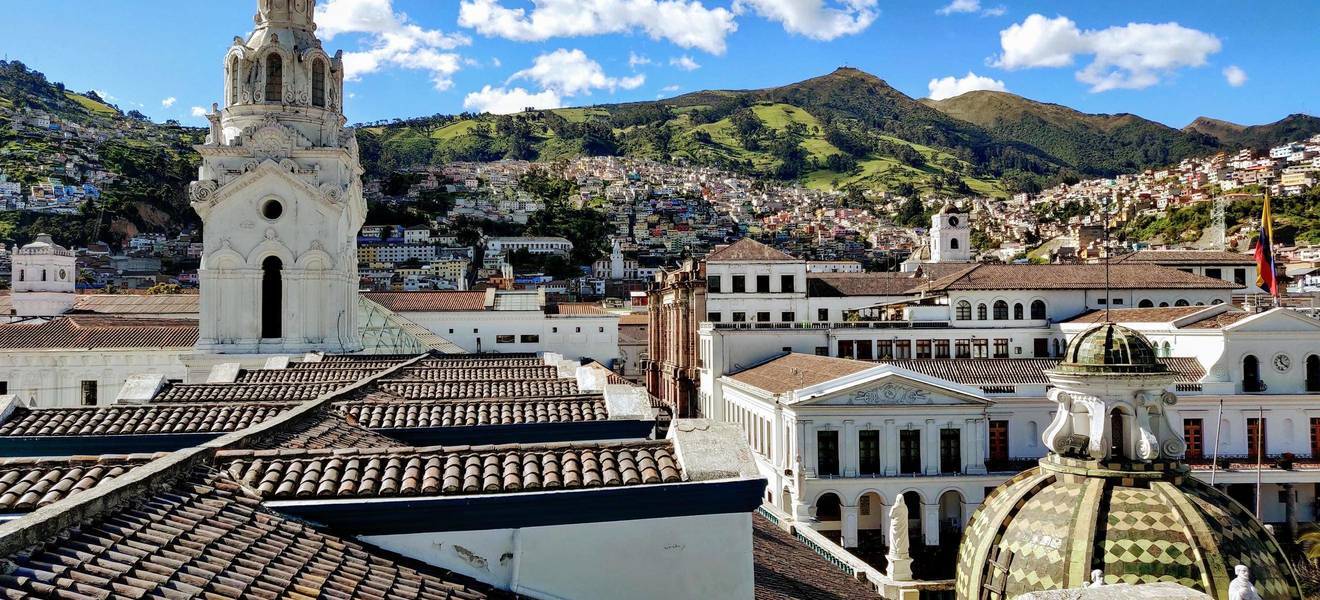
Quito
Quito is the capital of Ecuador and is located in the province of Pichincha, which in turn is part of the Sierra Norte region. A total of around 2,7 million people live here, making Quito the second largest city in Ecuador after Guayaquil.
The cityscape is characterized by hustle and bustle and bright colors. Thanks to the mild climate, everyday life in Quito revolves around the streets, parks and public squares. In the metropolis you will find an exciting mix of different lifestyles and architectural styles. In clear weather, the snow-capped peaks of the volcanoes surrounding Quito can be seen in the distance.
The city has a mild climate all year round due to its proximity to the equator. There are only two seasons here: In the dry season between June and September, temperatures rise to around 30°C. In extreme cases, however, the rainy season between October and May allows the thermometer to cool down to 3°C.
Would you like to get to know life in a colorful city, but don't want to miss out on fascinating nature? Then off to Quito! Here you can also improve and apply your Spanish skills!
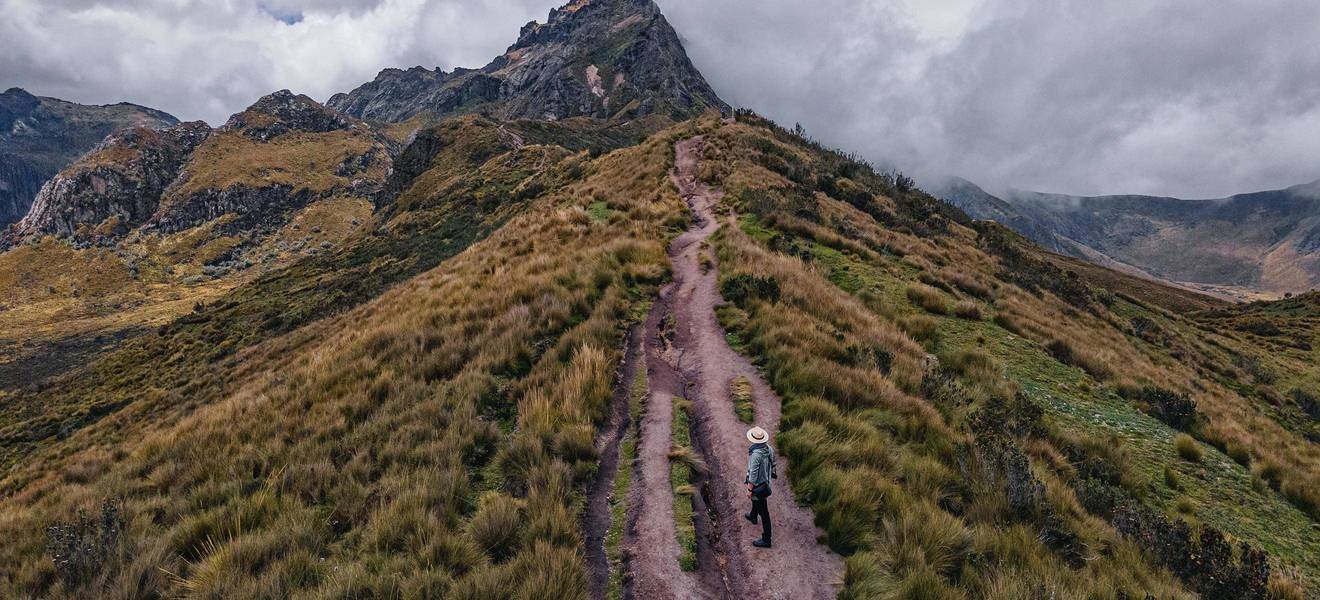
Your free time in Quito
After your project work in Quito, you can use the evenings and days off to explore your surroundings and go on excursions. The advantage of your location is that city and nature are close together here and you can spend your free time in a variety of ways.
Quito is an exciting city - not least because it is the highest capital city with its location at 2850 meters. In the city there is a perfect symbiosis of old and new, which is characterized by different architectural styles, cultures and ways of life. Quito's old town, which has been a UNESCO World Heritage Site since 1978, is particularly worth seeing. There you will find numerous monasteries, churches and houses with inner courtyards, so-called patios, and other buildings worth seeing, such as the town hall and the cathedral.
You can get a unique view of the entire city from El Panecillo. The hill is to the west of the city. A statue was even erected on it in honor of the Virgin Mary. Or you can take the Teleferico cable car up the Pichincha volcano. From there you also have a sensational view of Quito.
There is actually much more to discover within the lively city, because there is always something going on here. But Ecuador also has a lot to offer outside of the city. For example, travel to the Equator Monument, located about 25 kilometers north of Quito. Even if, strictly speaking, the monument is about 250 meters off the actual center of the world due to a measurement error, it is worth a visit and attracts many visitors.
Also on your to-do list is a guided tour of Mindo's cloud forest and breathtaking waterfalls. There you can fully enjoy the tranquility and idyll of nature, experience a lush flora and admire numerous species of birds and butterflies. With a bit of luck you will also see a few monkeys swinging from branch to branch through the jungle.
On-site procedure
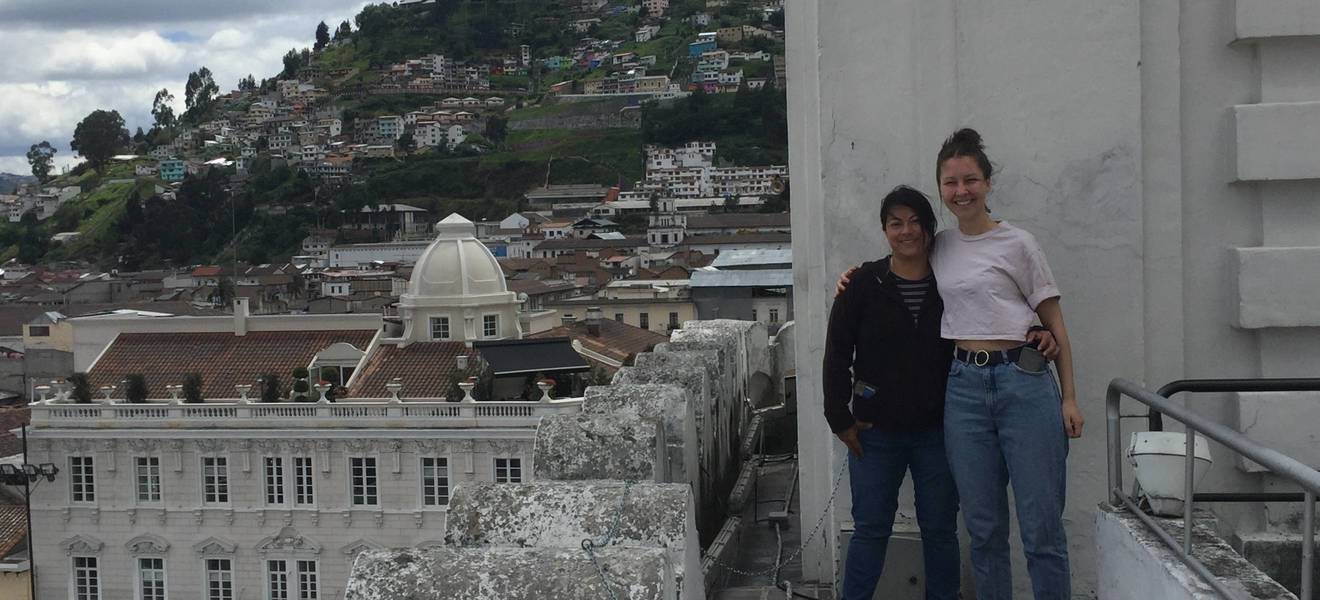
Arrival in Quito
A member of our team will be waiting for you right at the Quito airport exit. The person will be holding a sign with your name on it so you can't miss them. From there you drive to your accommodation by car. Depending on traffic and accommodation, the journey will take between 40 and 60 minutes. If you live with the host family, you will have the first evening free to rest from the long journey.
Eco-Lodge
If you work in the eco-lodge, you will be driven directly from the airport to the project. Please note that your arrival time should be no later than 16 p.m. The drive to the project takes three to four hours, depending on traffic.
language course
If you have booked our language course in Quito, this five-day course will take place before the project. Here you can brush up on your Spanish skills and at the same time get to know everyday life in Ecuador in an interactive course through joint trips to Quito.
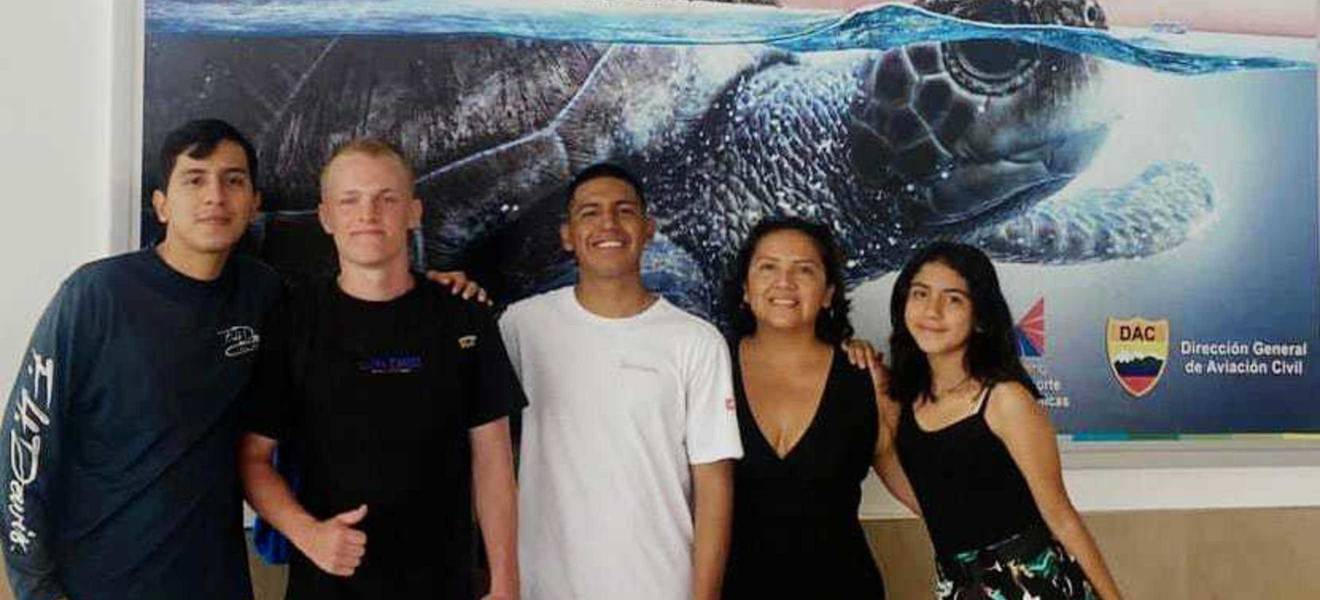
Orientation program in Quito
During the first two days in Quito, our team will prepare you for your upcoming stay in Ecuador. You will be offered activities that will help you get to know the country and the people better and learn more about the local culture. Our team will show you what you need to consider so that you can find your way around the area and inform you about your activities and tasks in the project.
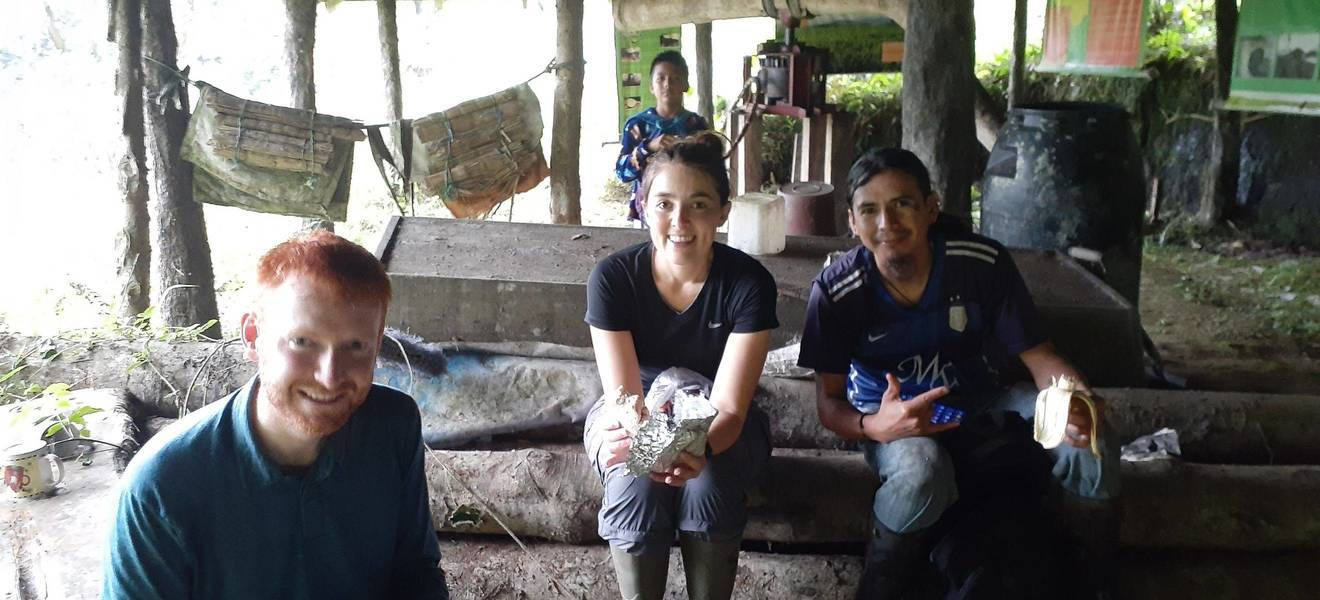
Your first day in the project
On Monday, after your language course ends, you finally start working on the project. On your first day, our contact person will accompany you to the workplace and introduce you to the project coordinator. On site you will receive an introduction to the activities.
Pricing
-
4 weeks of participationbase fee€ 1.750, -
-
up to 20 weeks respectivelyextension week€ 315, - / week
included
Services
Before departure
- Individual advice and support from our trained RGV team in Munich
- Organization including placement in the project and coordination of your stay on site
- Assistance with preparation: visa, health care, travel insurance, etc.
- Non-binding flight advice
- Travel ABC with packing list for your travel preparation
- RGV t-shirt
On site
- Orientation program with the team on site
- Support and guidance from the on-site team
- RGV 24h emergency number
- Project t-shirt to wear during on-site activities
- Airport transfer on the agreed day of arrival
- Accommodation in a host family
- Transfer from accommodation to project
- Meals: Breakfast and dinner (Monday to Friday provided by the host family); Lunch on working days
After return
- Participation confirmation of your voluntary commitment
- Reflection course on your experiences abroad
- Evaluation sheet and optional feedback discussion
not included
Services
- Round trip
- Private expenses on site
- Excursions with microlight flights
- Travel and cancellation insurance
- Visa and Vaccinations
- All nights outside your agreed accommodation
- Public transport and extra transfers
- Airport transfer on departure day
Individual
Recommended additional offers
& must-haves

Would you prefer to stay in a single room? Are you vegan or do you have special requests for food? Or do you want to do some cool trips with other volunteers in your free time and explore the country?
With us, you benefit from a variety of optional additional services that you can add individually to your booking, depending on your preferences.
Cheap flights with our flight partner thanks to volunteer rates.
Would you like to receive a cheap flight offer for your stay abroad that is perfectly tailored to you? After you have successfully registered, you can have a non-binding offer created.
The excellent rates for volunteers, students and young people are a great advantage. Arrival times and flight time changes can also be sent directly to RGV upon request, so that our RGV teams in the destination countries are always informed about your arrival times.
These special tariffs give you special added value:
- maximum flexibility for rebookings and cancellations
- generous baggage allowance
- Additional discounts on one-way flights: The new volunteer tariffs include attractive discounts to reduce your financial burden on one-way flights (e.g. for stopovers, project or country combinations).
Benefit from the 4 in 1 ERGO travel insurance.
You can easily book the long-term travel protection of ERGO Reiseversicherung after you have registered. You will receive the links to this automatically after a successful registration.
The following building blocks are included:
- Health Insurance
- Comfort protection: accident, liability and interruption insurance
- Travel insurance
-
One week intensive course before project start in QuitoLanguage course in Quito520 €
- Extended language course in Quito
-
Two tools to get you started on your personal developmentPersonal development introductory courseFree of charge
Quito
Team
site
Liliana is mainly responsible for the coordination at RGV in Ecuador. As managing director, she oversees, organizes and supports the work and activities in the projects. She has been teaching Spanish for over 20 years and attaches great importance to always responding to the individual needs of international students and working together on solutions.
Lourdes is also a project coordinator on site and provides support primarily with logistics and the organization of joint activities. She has been working on international projects for more than 20 years and has gained a lot of experience in intercultural exchange.
Both do their best to give you special experiences and an enriching time in Ecuador!
RGV
FAQ
to the project
How far in advance do I have to register?
Ideally your registration takes place at least 3-6 months before the desired departure date, But also short-term registrations are up 1-2 months before the planned departure is possible.
But it could be that your dream project is already booked. In this case we will try together to find a suitable alternative for you.
Can I travel with a friend or in a group?
Yes! On request we enable a double room if you for two with a friend or a friend, or an apartment or other suitable accommodation for groups.
We are very happy to enable our participants to go on a project and share accommodation with friends. Shared accommodation is usually possible both in the volunteer house and with the host family, although the room in the volunteer house may also be shared with other participants. In some locations there is also the option of sharing an apartment.
When registering, please always mention the person(s) traveling with you!
Can I combine projects?
Yes! You can combine projects at one location, at different locations, but also in different countries. It is also possible to combine a project with a trip. You can specify your desired combination directly when registering.
Combination options at a glance:
- Combine programs in one country
- Combine programs across countries
- Combine a program with a language course
- Combine a program with ours Adventure & Trips
There are a few things Project combinations to note: The minimum length of stay per project must be observed and you may incur additional costs for country combinations, for example for an intermediate flight.
What are the project fees used for?
Although we are a non-profit organization, there are costs associated with volunteering abroad. Find out here, why volunteering requires money and what your project fee is used for.
What visa do I need for Ecuador?
For Ecuador you need a tourist visa, which you can apply for upon arrival. This is valid for 90 days.
What language skills do I need for the project?
This project requires basic knowledge of Spanish. A language course is possible on site.
Which vaccinations do I need for the project?
In order to take part in this project, you need the following vaccinations and must be able to prove them with a vaccination card: rabies, hepatitis A and B, tetanus and yellow fever. In addition, proof of your blood group and a negative tuberculosis test are mandatory.
Are there age restrictions for the project?
Volunteers between the ages of 16 and 60 can take part in this project. Minors need a parent’s consent.
What are the requirements for the project?
No specific previous knowledge is required for standard tasks. Interest in animal protection, love of animals and motivation are important. However, participants with previous experience in various areas and very good Spanish skills (fluent) can take on significantly more responsibility and work in different areas of responsibility. This is not possible without very good Spanish knowledge and previous experience.
What do I have to consider as an LGBTQ person?
Please be aware that homosexual acts are considered undesirable in many countries in Africa, Asia and Latin America and are even punishable by law in some places. In general, people who are identified as queer are often exposed to hostility.
For example, get information from Foreign Office about the exact regulations in your destination country.
Ready to volunteer in Ecuador? Start your adventure abroad with Rainbow Garden Village!
Rainbow Garden Village has been offering volunteer work and internships abroad since 1999. What started as a small student initiative in Ghana has now grown into an organization with over 250 projects around the world.
You can be sure that your work as a volunteer will be an unforgettable experience. Bring your commitment and your knowledge to do good locally - and at the same time benefit from the unique experiences that will promote your personal development.
Become part of our RGV community!
We look forward to you.
RGV
Your way
to the volunteer
1
Choose your volunteer project and register online.
2
We will review your application and confirm your participation.
3
Prepare for your assignment online or in our preparatory seminar in Munich.
4
Here we go! During your volunteer work, we will support you at any time with our on-site team.
More projects you too might be interested
Are you not sure yet? Think about whether a spontaneous assignment as a volunteer abroad is the right choice for you or whether you would like to Voluntary social year (FSJ) abroad want to decide.
With RGV you achieve flexible volunteer work in different countries worldwide. Maybe there is one too Internship abroad the ideal choice for you to gain valuable experience abroad.
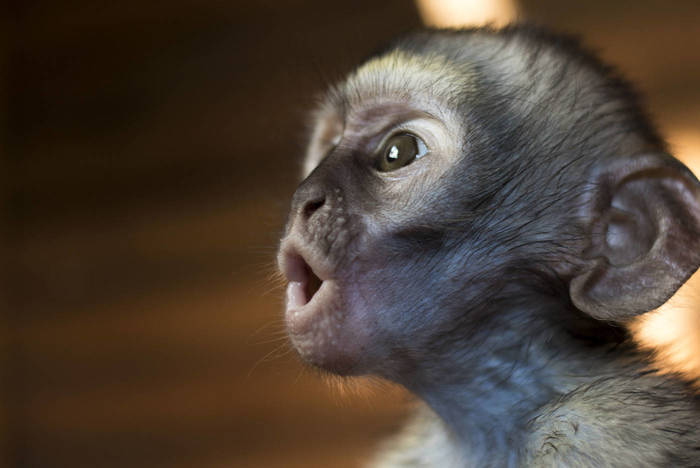

South Africa | Primates & Monkeys


Nepal | big cats
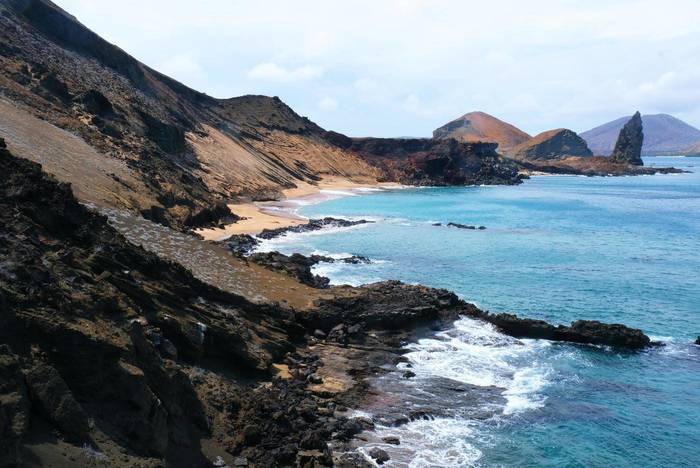

Ecuador | environmental Protection
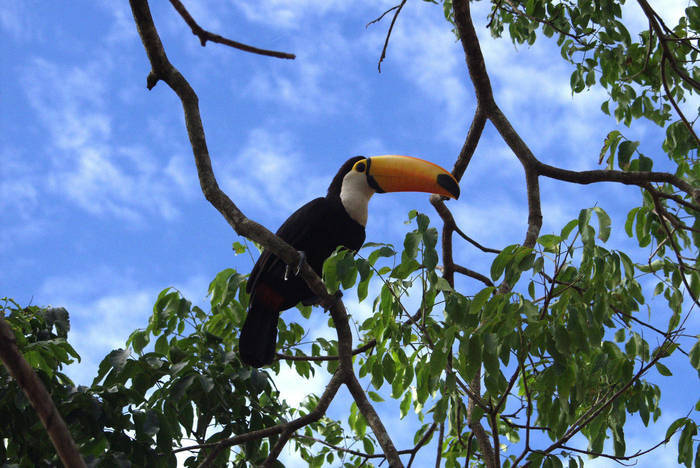

Bolivia | wildlife
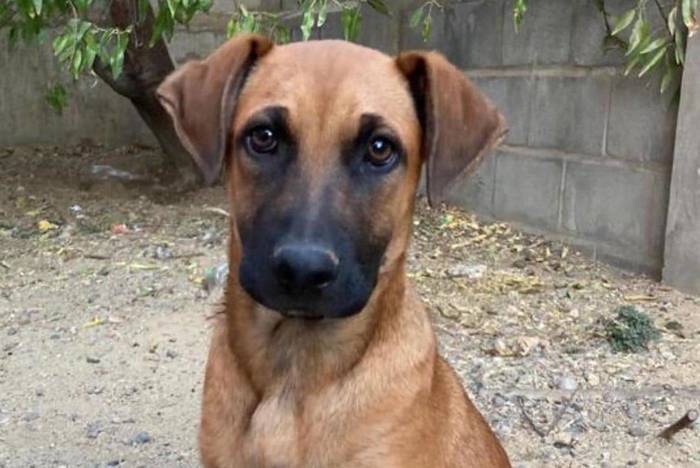

Chile | dogs & cats

